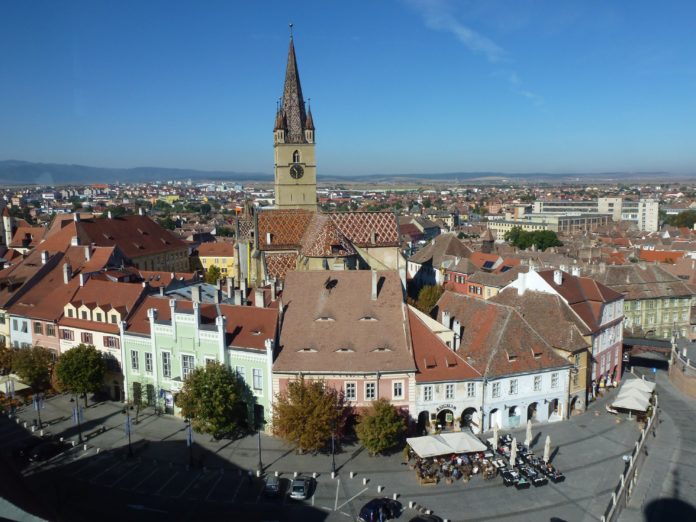Rome (NEV), September 13, 2017 – Ten years ago, from September 4 to 9, 2007, the third European Ecumenical Assembly was held in Sibiu, Romania, with the title “The light of Christ shines upon all. Hope for Renewal and Unity in Europe”. The Assembly was promoted – as the two previous ones (Basel 1989 and Graz 1997) – by the Conference of European Churches (Protestant and Orthodox) and the Council of European Bishops’ Conferences (Catholic). It was attended by 2.100 delegates of the different churches: more than one hundred delegates only from Italy.
One might wonder if it is worth remembering this decennial; in fact, few have done so and the promoters themselves did not consider it necessary. Perhaps because, of the three European Ecumenical Assemblies, this was the most difficult one as it took place in a period of acute crisis of ecumenism and ended with a final message that left many dissatisfied. However, I personally think that it is a pity to pass over in silence the ten Sibiu’s years, because, in spite of its shades, this Assembly had also many lights, as for example the insistence on the light of Christ. “It is our task – Pope Benedict XVI wrote in his message to the participants – to make the light of Christ shine forth today’s women and men: not our light, but the light of Christ”.
I would therefore like to highlight some positive aspects of the Sibiu Assembly. The first we have just pointed out: it is the “witness to the transforming power” of the light of Christ, a light – as the final message reads – that “is stronger than darkness” and which we are called to proclaim as “all-embracing hope for our churches, the all Europe and for the entire world”. It is from this focus on Christ that we have to restart, also today, if we want to give new energy to the ecumenical movement.
The second aspect is that of an Assembly conceived as a journey, as an “ecumenical pilgrimage” in laps – it started with a meeting in Rome, the centre of Catholicism, in 2006; another one in Wittenberg, the town of Luther, in 2007; followed by many other national meetings. The aim was to assess the gifts of the different Christian denominations and to involve all of God’s people on the path that would have culminated with the meeting of Sibiu, in a country – Romania – with an Orthodox majority, but in a city that is a crossroads of cultures and faiths, with important Protestant and Catholic presences.
This “ecumenical pilgrimage” worked out quite well in the preparatory stages, but in the end, perhaps, the Assembly was the victim of its own success, in the sense that it was not up to the hopes it had kindled. But the idea of engaging in an “ecumenical pilgrimage”, letting everyone to be enriched by the “gifts” that the different Christian traditions have received from the Lord, remains valid.
Finally, many of the recommendations contained in the closing message of Sibiu should be revaluated. Among these, the insistence on migrants and refugees reception – the theme on which focused the statement of the Italian preparatory; the invitation to continue the debate on the mutual recognition of baptism; the commitment to combating poverty on a global level and for the ecological justice. The last recommendation of the Sibiu’s message was that to devote the period from September 1 to October 4 to “prayer for the protection of creation and “the promotion of sustainable lifestyles that reverse the climate change trend”: it is the “Time of Creation” we are just celebrating these days.
Ten years have passed since the third European Ecumenical Assembly: despite its many shadows, we would not want it to be the last! Unfortunately, for the time being, the summoning of a fourth Assembly is not on the agenda, even though the changing ecumenical climate that characterizes the pontificate of Francis makes us hope that the situation may unblock. Meanwhile, various lay grass-roots movements, gathered in a “European Christian Convention”, are launching the idea of a sort of “European Kirchentag”, a great meeting of all churches’ Christians. We cannot but wish success to this initiative.





























